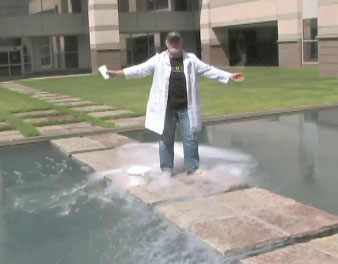Rick McMaster received his Ph.D. in low temperature physics from the University of Connecticut and is a licensed professional engineer in Electrical and Computer Engineering. Rick has had a range of assignments in his career at IBM, including process development, processor and subsystem design, marketing and business process development. Currently he is the STEM Advocate in IBM's University Programs Worldwide. He chairs the Central Texas Discover Engineering outreach to schools and is on the advisory board of WGBH's Design Squad Nation and WNET's Cyberchase.


